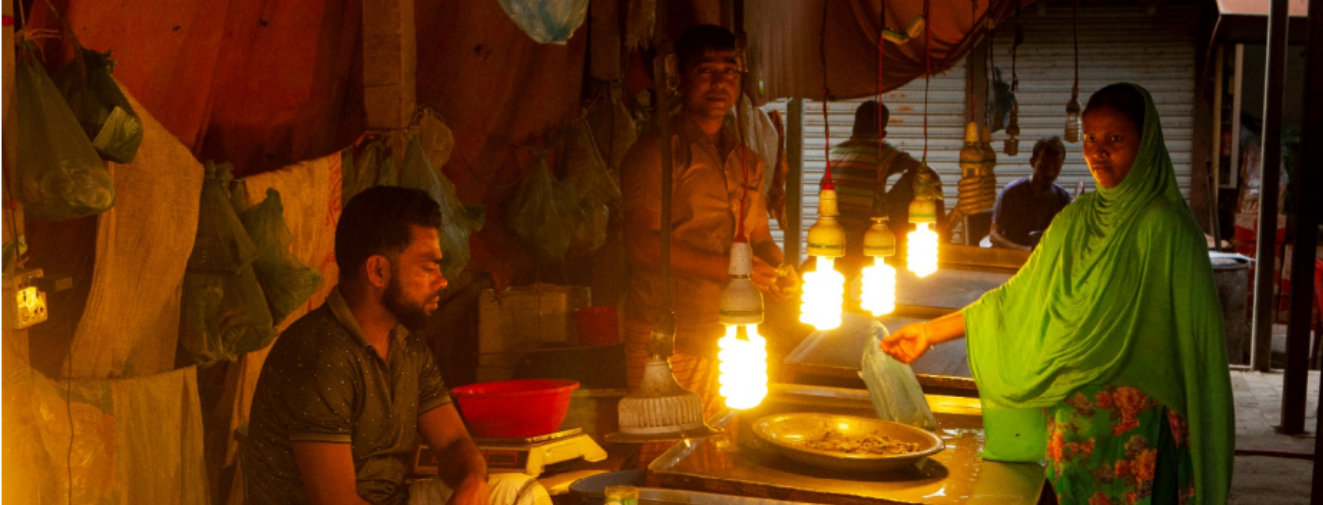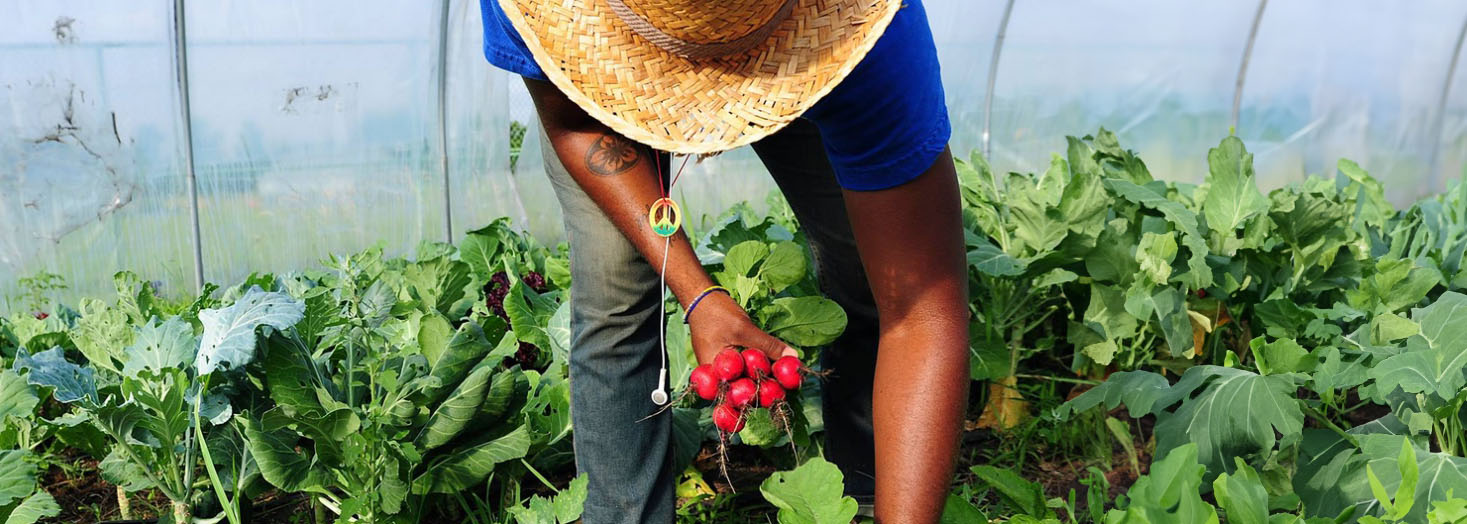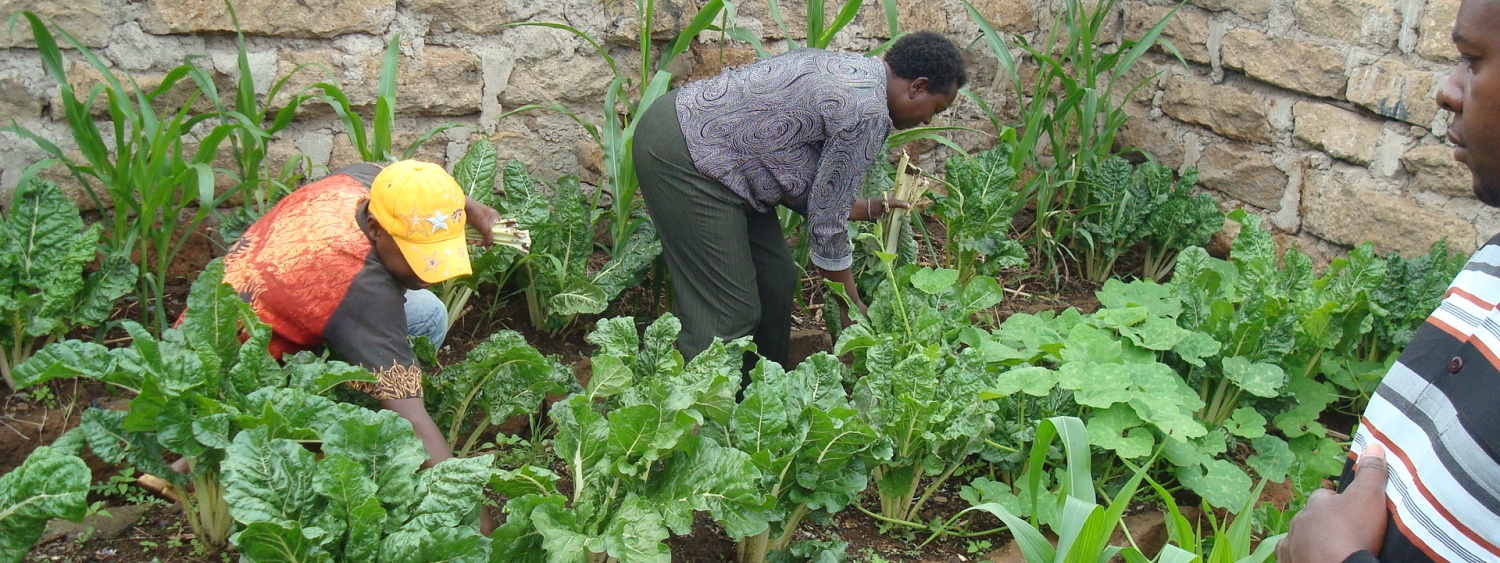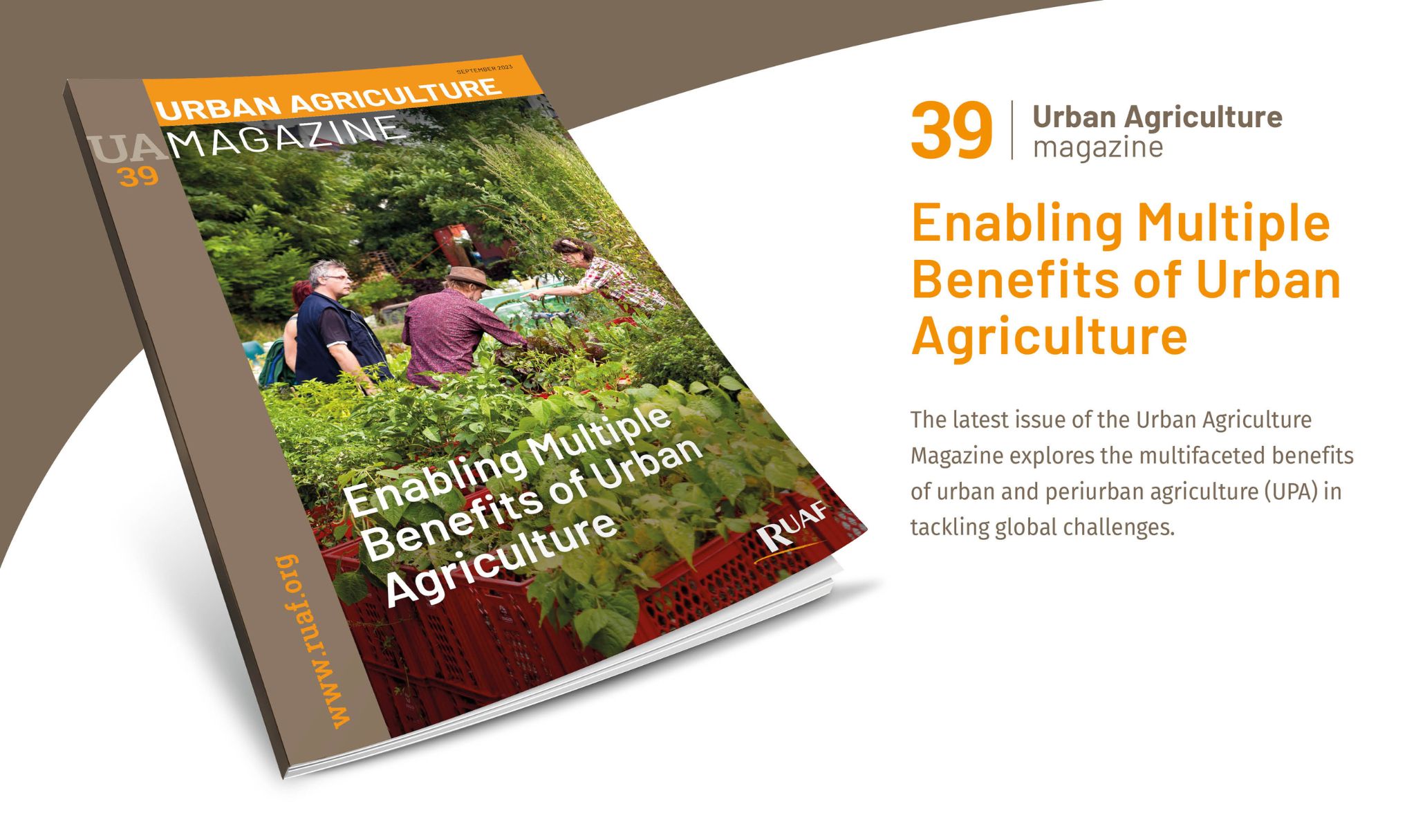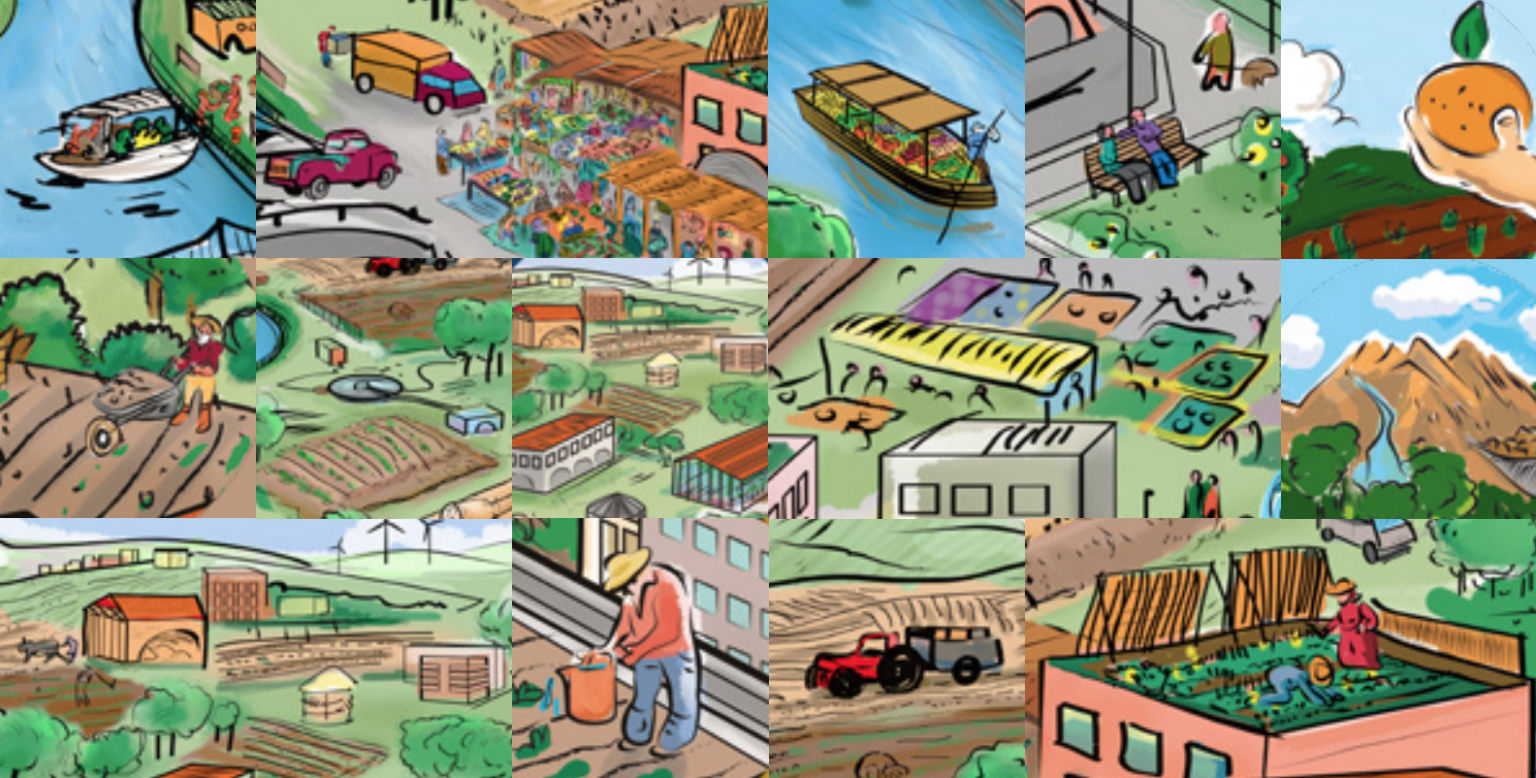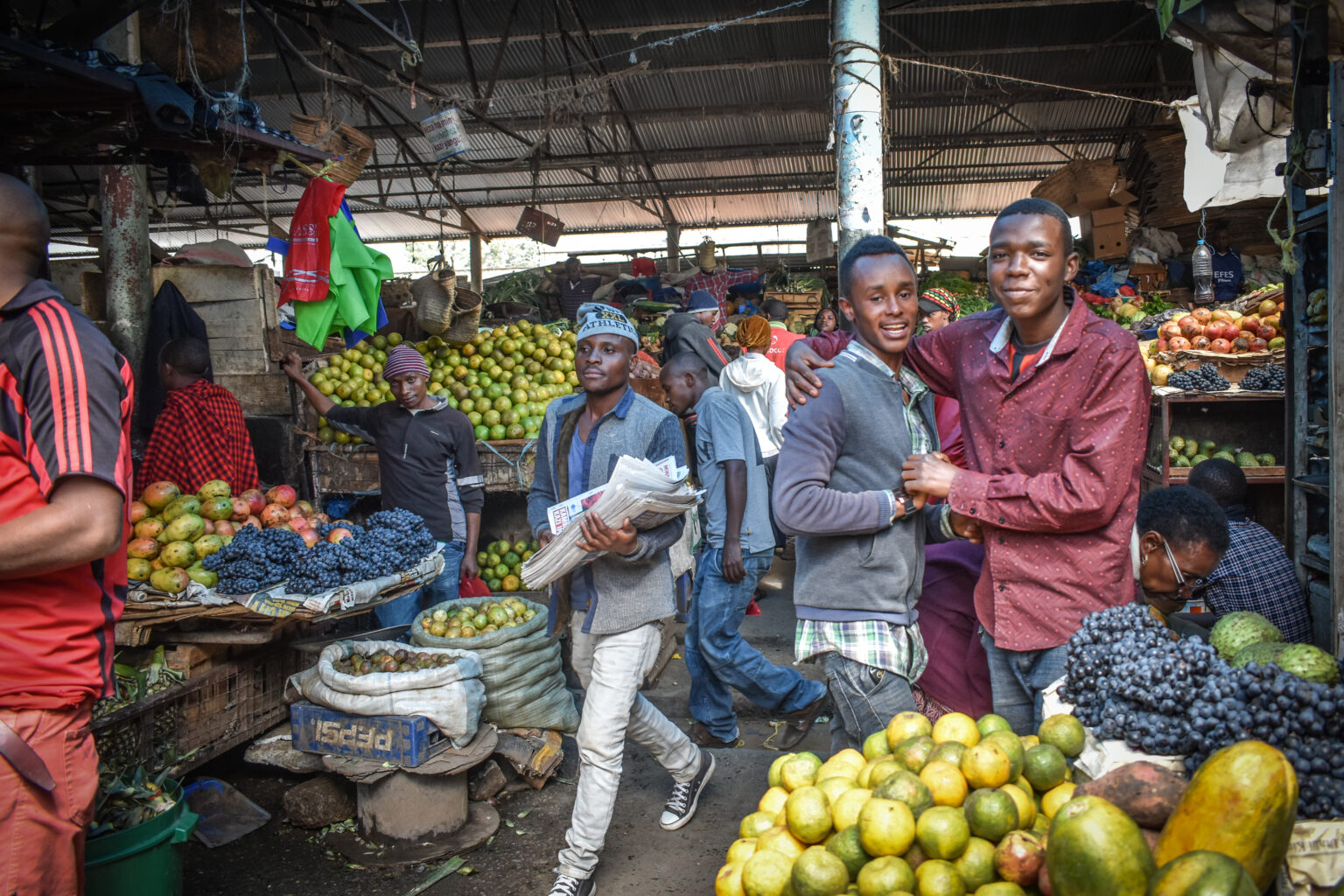‘I believe there are many other priorities in my life besides spending money on food,’ says 29-year-old Nasima*, who came to work in a readymade garment (RMG) factory in Bhadam city, Gazipur district, in 2018 to pay off medical debts after her husband suffered a brain injury during a fight with his brother.
Nasima eats little; mostly rice and vegetables, occasionally fish, and never meat. She understands the risk of nutrient deficiency if she does not eat properly, but she is often too tired to cook what food she has, particularly after a night shift.
Her poor diet is not unusual. Almost all the women RMG workers interviewed in a study conducted by RUAF partner IWMI’s Gender Platform struggle to afford nutritious, diverse, and safe food on their factory wages. Neither is her debt burden unusual. Not only do cultural norms require the women to undertake both paid work in the factories and domestic work in the home, but many are responsible for the debts of their husbands and other male family members.
Women from households headed by single women, or where the husband does not work, reported running out of money for food mid-way through each month. To obtain food before the next pay-day they must find a storekeeper who is willing to give credit, for which they invariably pay higher prices. The food that is available in peri-urban Bhadam is generally poor quality and contamination with pesticides or formalin (formaldehyde) is reportedly common.
Statistics versus experience
The RMG industry is a major economic driver in Bangladesh. Total export earnings from the sale of low-cost fast-fashion garments to the US, Europe, and other global markets were around USD 11185 million in full-year 2021-22. The industry contributed 9.25% to the country’s GDP. With women making up 80% of the 4 million RMG workers, Bangladesh is cited as the most gender-equal country in South Asia on the World Economic Forum’s Gender Gap Index.
Against the backdrop of these official statistics, the IWMI study documented women’s own experiences of how the ability to earn an income has impacted their food security and dietary diversity. The study was informed by a feminist political economy approach. Led by Dr Deepa Joshi, the research team conducted in-depth interviews with 20 female RMG workers, at a time and location that was convenient to them.
The testimonies of Nasima and the other respondents contrast starkly with national and international narratives that the RMG industry has empowered women through paid employment.
The women in Bhadam’s RMG factories work long hours, six days a week, earning from 8000 to 13,000 tk (c. USD 77.5 to USD 125) to a month (depending on position, attendance bonus and overtime). None came to work in Bhadam out of aspiration to work in the garment industry; all of them migrated from their villages due to unfortunate life events, such as debt, family poverty, or domestic violence, in many cases leaving children in the care of relatives.
Analysis of the interview data has led the researchers to advocate a new measure of women’s empowerment in Bangladesh, since the narrow economics of women’s paid work obscure the everyday realities and poor health and nutritional outcomes. This research is aligned with RUAF’s commitment to building understanding of gender and intersectional inequities in urban food systems, with a view to enabling transformative food policies and programmes.
Transformational change
Although there are some programmes to provide nutritious meals in the workplace on a payment basis, only a small percentage of factories have subscribed. The Trading Corporation of Bangladesh (TCB) has several trucks that distributes daily necessities at very low prices in some areas, but the workers interviewed had either never heard about them or not seen them in Bhadam.
The researchers maintain that addressing food insecurity amongst RMG women workers requires systemic change that tackles both the problem of poorly paid work for women and cultural norms that place domestic burdens on women in challenging living conditions.
While men tend to be responsible for choosing and purchasing food from markets (where respectable women do not go alone, or wear a veil), women do the cooking. In all households that include a male, he controls the money – whether he works or not. The woman must request money if she wishes to buy something.
In some cases, male household members live off their wives’ incomes. One woman reported that her husband has a gambling habit, another that her abusive husband only allows her to work because it serves his interest.
Some women with challenging domestic situations have been able conceal additional wages, such as for overtime. Proposals to digitalise the wages of RMG workers have been met with dismay, as these women’s male relatives would know their real income.
The village dream
With such difficult lives, across both work and domestic spheres, all the women in the IWMI study consider their residence in Bhadam to be temporary. All intend to return to their village – and to greater food security and to more diverse, nutritious diets – as soon as circumstances allow.
For Nasima, who cannot sleep at night worrying about her debt, fulfilment of that dream is still years away. Actions to address poor pay and to improve both living and working conditions would have a significant impact on her life, and the lives of millions more.
*name has been changed

